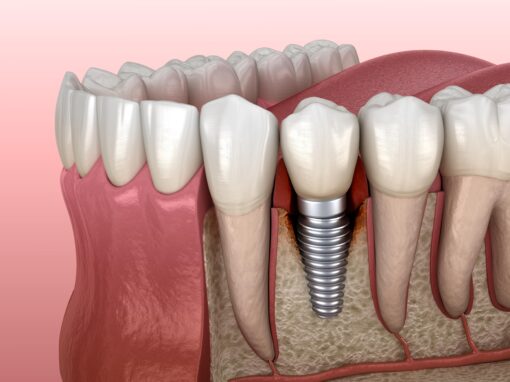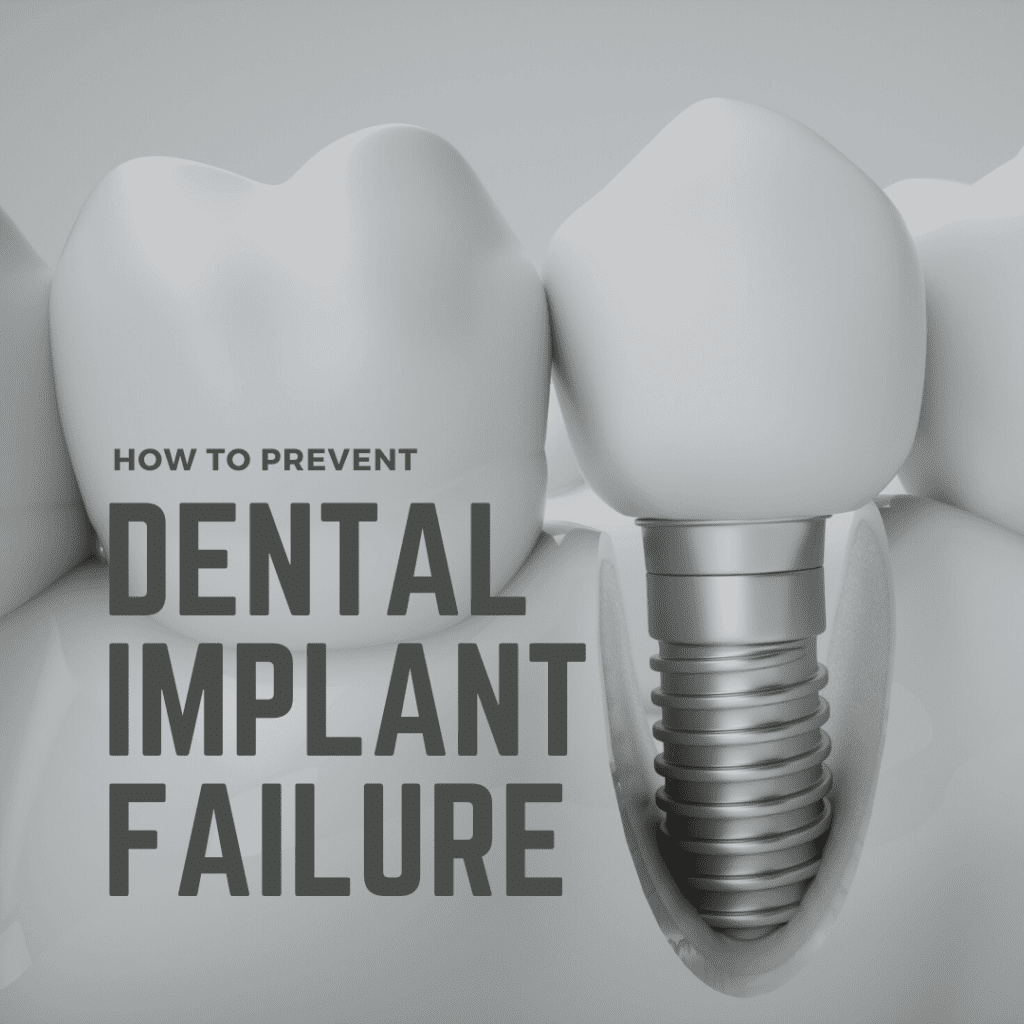Dental implants are one of the best ways to replace missing teeth and they have a success rate of around 95% according to the American Academy of Implant Dentistry. Even with such a high success rate, this still means that 5% of cases fail. In this blog post, we will discuss the most common reasons for implant failure, as well as tips to avoid implant failure from happening.
There are various different reasons why dental implants can fail, however some reasons are more common than others. In fact, the top four reasons for implant failure include infection, poor implant placement or positioning, inadequate oral hygiene and smoking.

Infection: One of the most common reasons for dental implant failure is infection, specifically peri-implant diseases. This can be caused by bacteria that enters the wound after surgery or from plaque and tartar buildup around the implant.
The best way to prevent an infection after having dental implants placed is to follow your dentist’s postoperative instructions. Oftentimes this can mean taking antibiotics, using a mouthwash prescribed by your dentist, and practicing good oral hygiene.
Poor Placement or Positioning: If the implant is not placed properly, it can move out of position over time and eventually fail. In some cases this can happen because the implant was improperly placed and/or because the dental impression used to fabricate the restoration was not accurate.
The best way to prevent implant failure due to improper placement is to carefully select the right implant dentist. Make sure to ask questions and review their qualifications, as well as the number of successful procedures they have completed. Using an experienced implant dentist drastically reduces this risk.
Inadequate Oral Hygiene: If plaque and tartar are not removed regularly, they can cause inflammation and infection around the implant. While the gum tissue is usually affected first, the infection can spread to the underlying bone if not treated. When this happens, the bone around the implant can deteriorate and lead to implant failure.
To prevent plaque and tartar buildup, it is important to practice good oral hygiene. This includes brushing your teeth at least twice a day, flossing daily, and using a mouthwash prescribed by your dentist. It is also important to schedule regular checkups and cleanings with your dentist.
Smoking & Excess Alcohol Consumption: Smoking and drinking alcohol in excess can both damage the bone and soft tissue surrounding the implant. Smoking has been found to decrease healing, while alcohol has been associated with impairing osseointegration. This makes it harder for the implant to heal properly and more likely for the implant to fail.
To prevent implant failure due to smoking and alcohol, it is important to quit smoking and limit your alcohol intake. In fact, many dentists will not place implants in patients who regularly smoke or consume excess alcohol.
Dental implants are a great way to replace missing teeth, and have a high success rate. However, there is always the risk of implant failure. In this blog post, we have discussed the most common reasons for dental implant failure, as well as tips to help you avoid implant failure from happening. By following these simple tips, you can help ensure the success of your dental implants! Contact our office today to schedule a consultation. We would be happy to answer any questions you may have.




